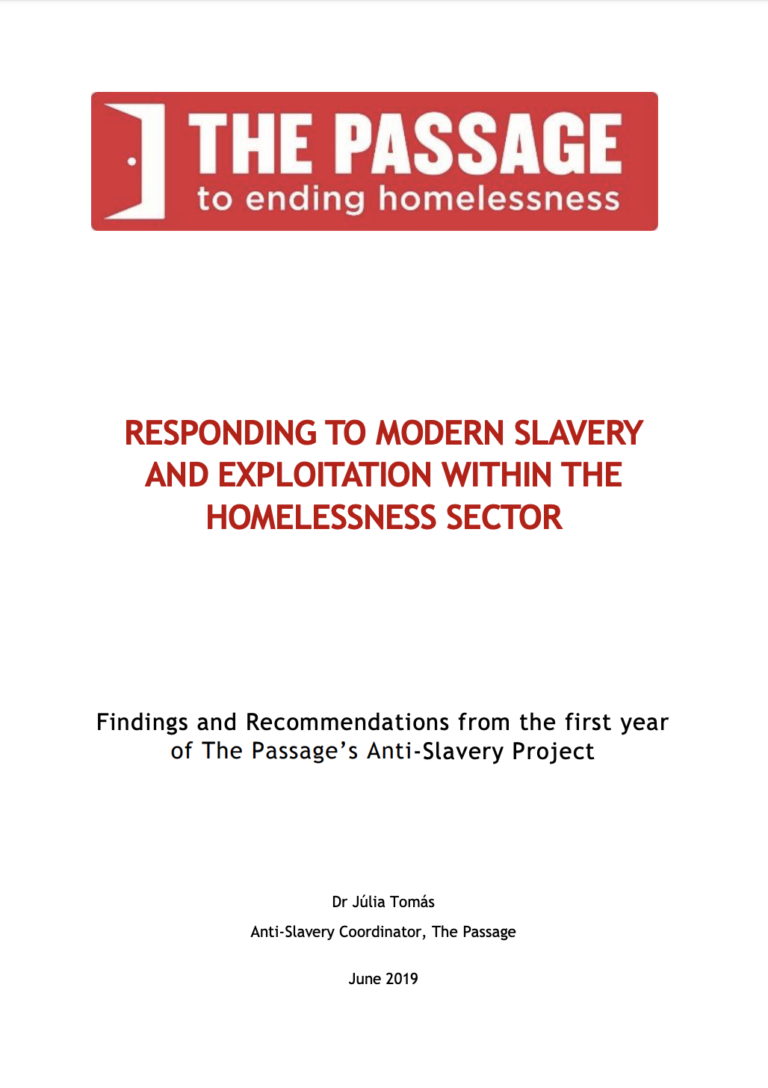The Passage Anti-Slavery Project 2018/2020
This report depicts The Passage Anti-Slavery Project’s first two years, from June 2018 to June 2020. The first section of the report describes the project’s objectives, the steering group which guided the project and its main key achievements. The achievements...

